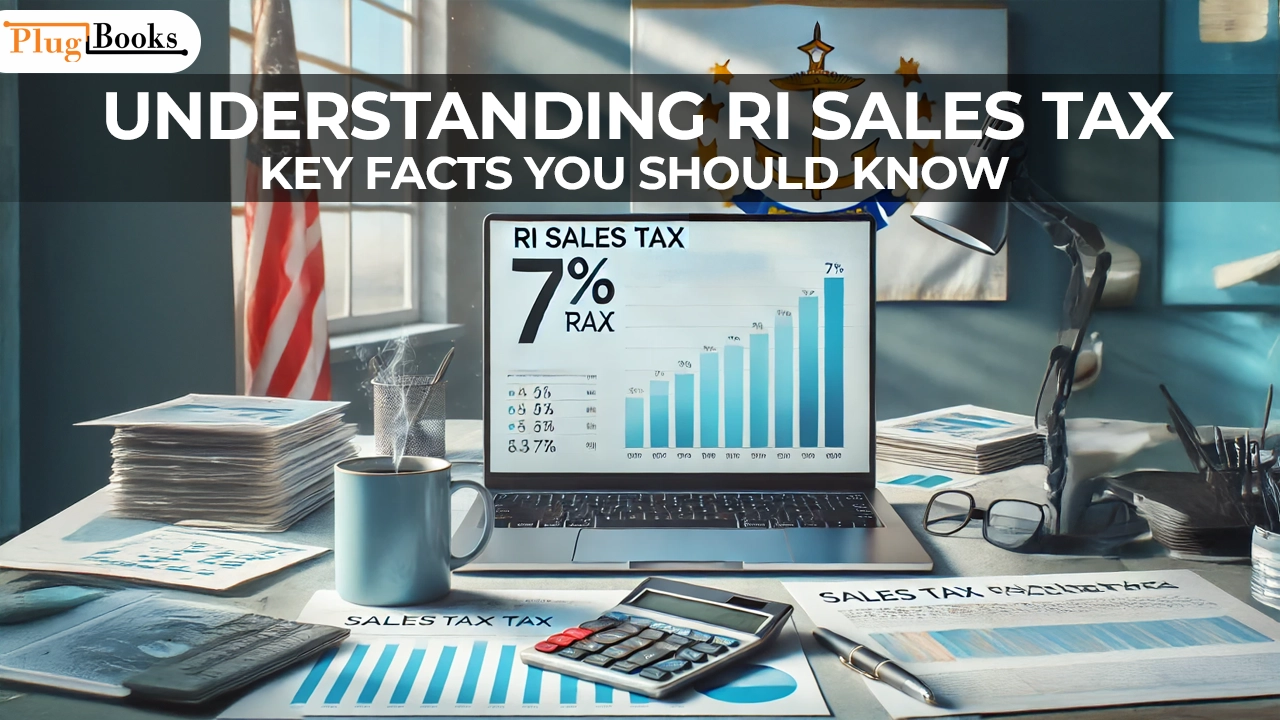If you live in Rhode Island or run a business there, you’ve probably heard the term “RI sales tax.” But what exactly does it mean? Simply put, RI sales tax is a tax that businesses collect on the sale of goods and certain services. The tax is then paid to the Rhode Island state government.
Sales tax is an important part of the state’s revenue system. It helps fund essential public services like education, healthcare, and infrastructure. Whether you’re a consumer or a business owner, understanding this tax can help you manage financial transactions with confidence.
How Much is the RI Sales Tax?
As of now, the sales tax rate in Rhode Island is 7%. This rate applies to most goods and certain services, like accommodations and event tickets. However, some items are exempt from this tax. We’ll cover those exemptions below.
For businesses, this rate means that when you sell taxable goods or services, you need to collect 7% on top of the price. You will then remit the collected tax to the state. It’s essential to understand how to apply this rate correctly.
What is Exempt from RI Sales Tax?
Not everything is subject to sales tax. Some goods and services are exempt, including:
- Groceries: Most food items purchased for home consumption are not taxable.
- Prescription Drugs: Medical necessities like prescription medications are exempt.
- Clothing: Clothing items under a certain price point are exempt.
- Certain Services: Professional services like legal advice and medical services are also exempt.
Consumers and business owners need to be familiar with these exemptions. This knowledge helps avoid overpaying taxes or mistakenly charging customers for exempt items.
How Does RI Sales Tax Impact Businesses?
If you own a business in Rhode Island, you are responsible for collecting sales tax on taxable transactions. Failing to collect and remit the tax can result in penalties and interest charges. To stay compliant, it’s essential to understand the following:
- Registering: Businesses must register with the Rhode Island Division of Taxation before collecting sales tax.
- Collecting Sales Tax: Ensure you apply the 7% rate correctly to taxable goods and services.
- Filing Returns: Businesses must file regular sales tax returns, reporting how much tax was collected.
Keeping up-to-date with changes to Rhode Island’s tax laws is also essential. This helps you stay compliant and avoid unexpected costs.
RI Sales Tax Exemptions for Businesses
Some businesses can qualify for exemptions or special tax treatment. For example, businesses selling items for resale don’t need to pay sales tax on those items. Additionally, certain manufacturers and wholesalers might qualify for tax exemptions on specific goods used in production.
If your business falls into one of these categories, it’s crucial to consult with a tax professional. They can help ensure you take advantage of available exemptions.
RI Sales Tax Penalties: What to Avoid
Not complying with Rhode Island’s sales tax laws can result in severe penalties. These may include:
- Late Filing Penalties: Filing your sales tax returns late can lead to fines.
- Failure to Collect Sales Tax: If you fail to collect the correct amount of tax, you may be responsible for paying it out of pocket.
- Interest on Unpaid Tax: Any unpaid tax will accrue interest, adding to your liability.
Avoid these penalties by staying on top of your sales tax obligations. Filing your returns on time and accurately collecting tax is essential for avoiding penalties.
Conclusion: Mastering RI Sales Tax
Understanding RI sales tax doesn’t have to be overwhelming. By staying informed, you can easily manage sales tax for your business or personal purchases. For business owners, staying compliant ensures you avoid penalties and maintain smooth operations. For consumers, knowing what’s taxed and what’s exempt can help you save money.
If you’re a business owner looking for more tips on tax compliance, check out our other blog posts on financial management and taxation at plugbooks.io.




